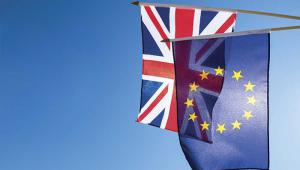Experts at the event on Brexit and tax, organised by the APPG on Responsible Tax, also agreed that it was crucial the UK re-defines its tax policy to fund health and social services.
Judith Knott, who formerly oversaw aspects of tax policy at the Treasury and HMRC, said the UK should “stay at the forefront” of the international fight against tax avoidance post-Brexit.
She said: “Ironically, in the last couple of years, the EU has started to get its act together on combatting tax avoidance, just as the UK is leaving.”
Conservative MP Nicky Morgan said the UK still needs a secure tax base and international cooperation to find long-term solutions for taxing multinationals.
“We will need to fund public services... and we want to be a good place to do business,” she said, adding that the UK is part of the “global movement” on tax transparency and said the UK’s role in the G20 and OECD discussions would “very much continue”.
The work done by the EU, including its anti-tax avoidance directive, is based on the work of the OECD and aims to ensure that all member states are adopting the OECD principles to tackle tax avoidance.
Knott said the UK has in recent years recognised the importance of fighting tax dodging internationally and has taken “a strong lead” in the efforts of the OECD, including the base erosion and profit shifting (BEPS) initiative.
But in the EU context, the UK had not been in the forefront although it is on the way to adopt the EU rules and recommendations.
The EU does not mandate tax on member states but countries are expected to apply anti-avoidance measures by 1 January 2019 – a few months before the UK is set to leave the bloc.
Under the EU membership, countries are required have aligned VAT and custom duties. But the UK could abolish these when it leaves the bloc.
Frank Field, Labour MP for Birkenhead, said the UK has a problem of raising revenue through tax and the government should use Brexit as an opportunity to re-define its tax system.
He said: “We desperately need a new viable source of income for health and social care.”
He suggested that Brexit is used as a “backbone” to introduce tax reforms, including reforming national insurance to pay for health and social care.
But experts at the event stressed that the EU had not been in the way of the UK making these changes but there had been a lack of political will.
Field said he hoped Brexit would be used to make these changes.
It was hard to know what was at stake when changing tax policy, Morgan said.
She added that the IMF recently said the US tax reforms would be beneficial to the global economy.
Morgan said that VAT is currently funding a lot of schools and hospitals and it is important the UK find ways to raise the revenue once its leave the EU and the EU rules.
According to the Institute for Fiscal Studies, income tax, national insurance contributions and VAT raise almost two thirds of UK revenues and are forecast to contribute almost 62% of tax receipts in 2017-18.
Total tax receipts in 2017-18 are forecast to be £690bn, the institute reported.
Of this, 18% is VAT and 8% are other indirect taxes. VAT and duties are set by the EU.
The chair of the APPG, Margaret Hodge, has previously said tax avoidance was “damaging public services” at an emergency debate in November.











